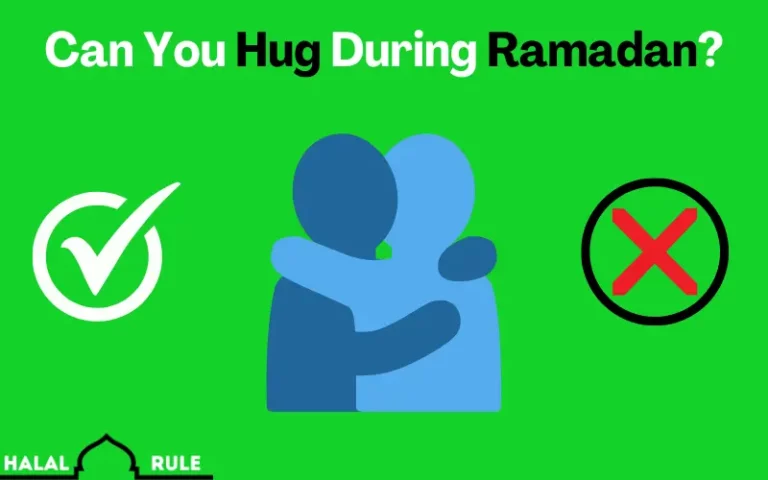Is It Halal To Donate Organs After Death?
Organ donation is a complex and sensitive topic, especially for those with religious beliefs.
In many cultures, the act of donating organs after death is considered a selfless and noble gesture that can save lives.
However, for Muslims, there are often questions about whether organ donation is halal (permissible) or haram (prohibited).
Understanding the halal concept in Islam and religious scholars’ perspectives can shed light on this issue.
In this article we’ll answer is it halal to donate organs after death in Islam and explore the different opinions on this matter.

Is It Halal To Donate Organs After Death?
Yes, it is considered halal to donate organs after death in Islam under certain conditions.
According to Islamic teachings, saving a life is one of the greatest deeds a person can do and is highly encouraged.
The Quran states, “Whosoever saves a life, it is as if he has saved the whole of mankind” (5:32).
This principle applies if you can help someone without causing harm to yourself or others.
Therefore, if organ donation can save a life without causing harm, it is considered permissible in Islam.
After death, the body is considered a sacred trust of God that should be respected and treated with dignity.
But if donating organs after death can save someone’s life, then it is considered a noble and selfless act that is in line with Islamic teachings.
Also note that there are several conditions where organ donation is not permissible in Islam, such as when it involves selling or receiving compensation for organs.
The act of organ donation must be done solely to save a life and not for personal gain.
So with this understanding, we can conclude that donating organs after death is halal in Islam.
You can also learn is it haram to donate blood.
Different Opinions On Organ Donation In Islam
Despite the general consensus that organ donation is halal in Islam, there are some differences of opinion among religious scholars you should be aware of.
Some scholars argue that the body is from Allah and should not be altered or damaged in any way, even after death.
They believe that organ donation is a form of mutilation and goes against the principle of respecting the body as a sacred trust.
Others argue that organ donation is permissible according to Quranic principles of saving lives and benefiting others.
They also highlight the fact that organ donation is a form of sadaqah (charity) that can continue to benefit others even after death.
There are also varying opinions on which organs can be donated after death.
Some scholars allow for the donation of only vital organs such as kidneys, heart, lungs, liver, etc. while others permit the donation of non-vital organs such as corneas, bones, etc.
It is important to note that these differences in opinions are based on individual interpretations and understanding of Islamic teachings.
Being a girl if you’re confused about nose piercing, you must learn is nose piercing haram for female.
Is Organ Donation Halal If A Person Alive?
You might wonder if organ donation is halal or haram when a person is still alive.
According to Islamic teachings, harming oneself or causing harm to others is strictly prohibited.
If donating an organ while alive can cause harm or put one’s life at risk, then it will be considered haram in Islam.
However, if the act of donating an organ is done voluntarily and does not put the donor’s life at risk, then it is considered permissible.
In fact, donating an organ to a family member or someone in need is seen as an act of kindness and mercy in Islam.
Also see is tongue piercing haram.
Conditions For Halal Organ Donation After Death
There are three main conditions that must be met for organ donation after death to be considered halal in Islam:
1. The donor must have given consent before their death – this can be done verbally or in writing, and it is highly encouraged for individuals to discuss their wishes with their family members beforehand.
2. The recipient of the donated organ must be in dire need and there is no other viable alternative available. This means that the donation should be done out of pure intention to save a life and not for any personal gain or benefit.
3. The organ cannot be sold or traded for monetary gain – organ donation should be an act of charity and altruism, and not a means to make a profit.
FAQs
Q. Is it haram to donate organs after death?
A. No, donating organs after death is not considered haram in Islam as long as it is done with the intention of saving a life and without any ulterior motives.
Q. Does Islam allow organ donation after death?
A. Yes, Islam allows organ donation after death as long as it meets the conditions of saving a life and not causing harm to oneself or others.
Q. Is it haram to donate organs after you die?
A. No, it is not haram to donate organs after you die as long as it is done with the correct intentions and meets the conditions set by Islamic teachings.
Q. Can Muslims donate organs after death?
A. Yes, it is permissible for Muslims to donate organs after death.
Q. Can I donate my organs after death in Islam?
A. Yes, you can donate your organs after death in Islam as long as certain conditions are met.
Q. Is it haram to donate organs when you die?
A. No, it is not haram to donate organs after death in Islam as long as certain conditions are met.
Conclusion
In conclusion, donating organs after death is considered halal in Islam as long as it meets certain conditions.
It is a selfless act that can save lives and benefit others even after death, which aligns with the teachings of Islam.
I hope that this article has provided some clarity on the concept and answered your query is it halal to donate organs after death in Islam.
Feel free to share your thoughts and opinions in the comments below.






